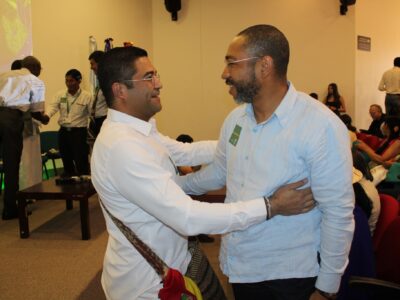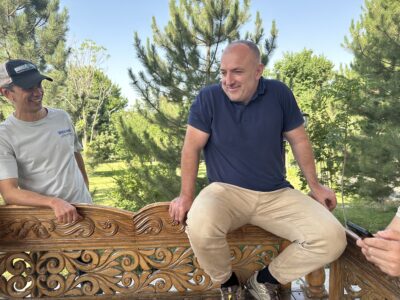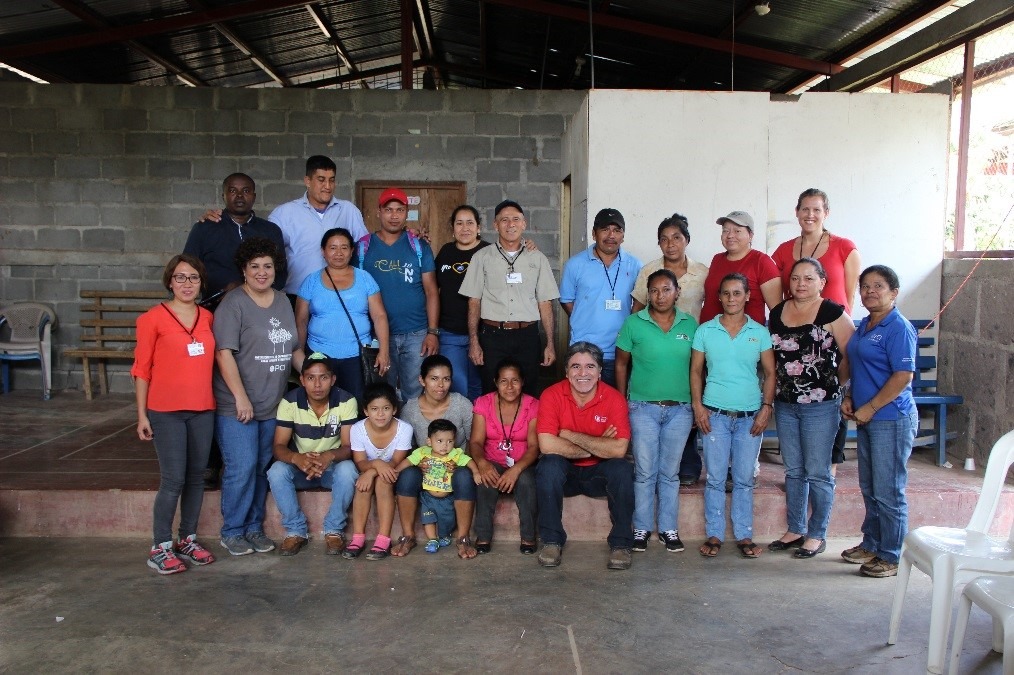
The Learning for Gender Integration (LGI) Initiative’s evaluation team in Nicaragua
As a member of ACDI/VOCA’s gender team—and throughout my career—I’ve conducted formative research and evaluations in many places. I’ve enjoyed helping projects understand why certain project interventions work well and how they can improve their impact on participants.
But the issues projects faced were often too complex or interrelated to prove a clear cause and effect relationship. How did I know positive gender outcomes resulted from specific project interventions? What if project participants just told me gender roles had improved because they knew it was what I want to hear to make the project continue? In short, I needed better methods!
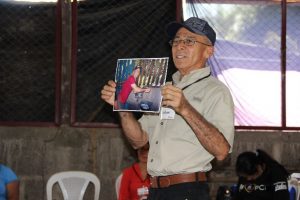
Through a Program Improvement Award, funded by USAID’s Technical and Operational Performance Support (TOPS) Program and secured by Lutheran World Relief (LWR), I was invited to help conduct a final evaluation of LWR’s Learning for Gender Integration (LGI) Initiative in Nicaragua. Cultural Practice led the design of the evaluation using two, participatory methodologies to capture changes in food security and gender inequalities: Most Significant Change (MSC) and Photovoice (PV).
I soon learned that MSC is a bottom-up process of generating narratives of change brought about by a project, whereas PV is a participatory action research (PAR) method of empowering participants to identify and solve problems in their communities using photography and oral narratives.
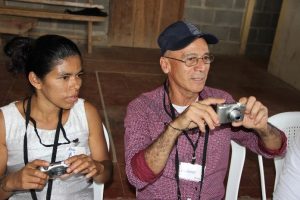
In Nicaragua, I watched as Balvino Gonzales, a project participant, pursed his lips in deep concentration as he fiddled with his camera. He would later tell me it was his (and many others’) first time using one. Balvino’s vibrant photos and engaging stories brought me into his world and helped me understand the pride he felt in the changes he and his wife had made because of the project’s gender sensitization, like him taking on more household chores to allow his wife to expand her fishery.
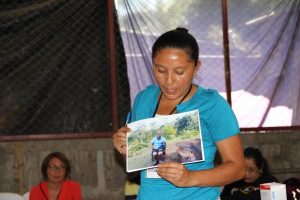
Another powerful moment occurred when Elida Ochoa, a project participant, pointed to a self-portrait of her looking squarely and defiantly into the camera. The photograph symbolized how far she had come—from a disengaged, angry person to an empowered leader. Elida beautifully described the messy, complex, and non-linear process of what becoming empowered looked like for her, using the self-portrait to express herself. ADDAC, the local implementer of the LGI Initiative, selected Elida’s story as one of the most significant changes they witnessed. At this, Elida beamed quietly, and I sat back in disbelief at how seamlessly the overlapping perspectives contributed to an equitable analysis for the evaluation.
Despite my preparation, I did not realize the truly transformative nature of these interactive methodologies until I saw them in practice. As gender practitioners, our work is often characterized by complex and non-linear changes to power structures to create more equal opportunities and benefits among men, women, boys, and girls. To measure how we are doing, we need evaluation tools that embrace complexity and reinforce equity.
Now I can’t wait to apply these new tools to ACDI/VOCA projects. What other tools do you use to promote equitable, participatory, and complexity-aware program evaluations?
Comments

